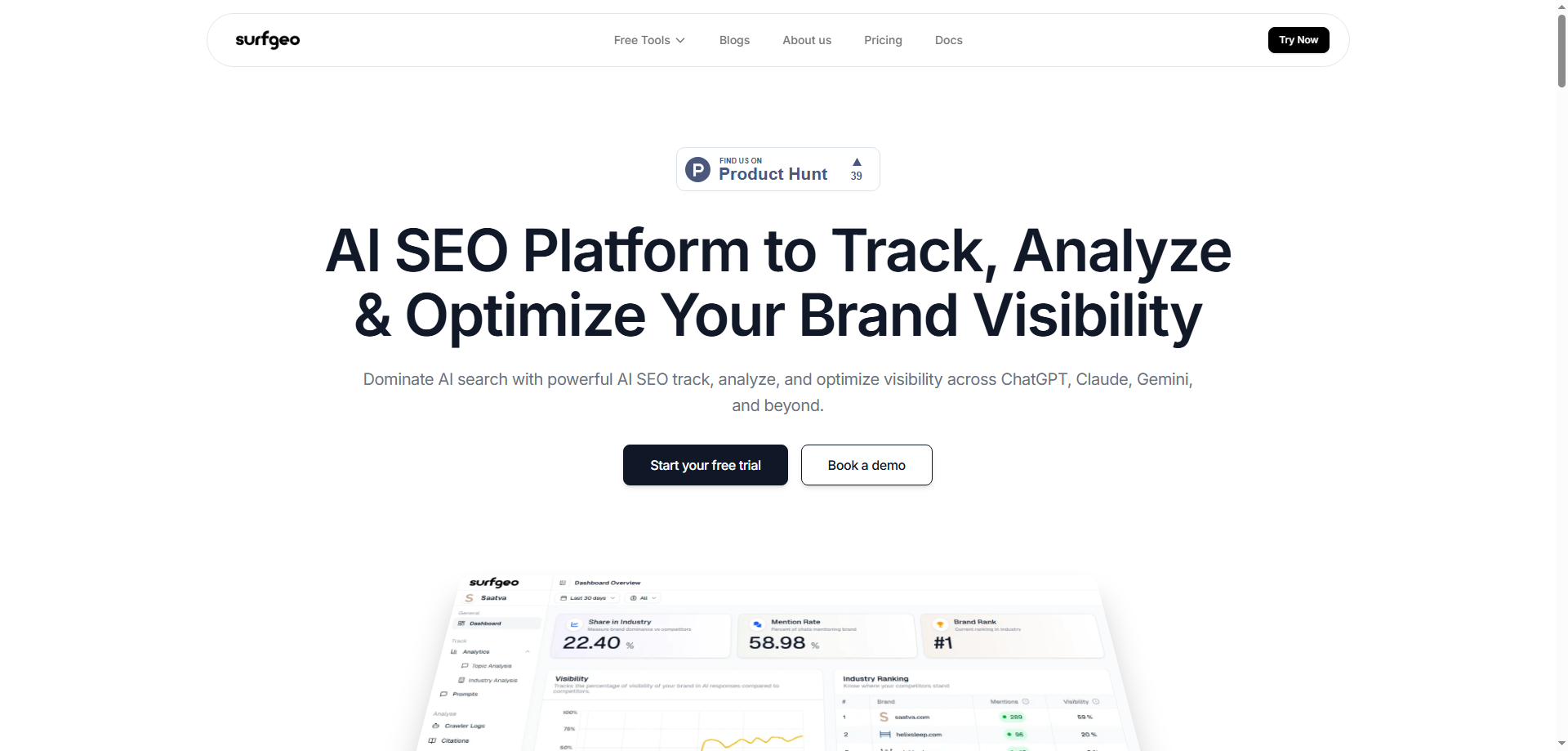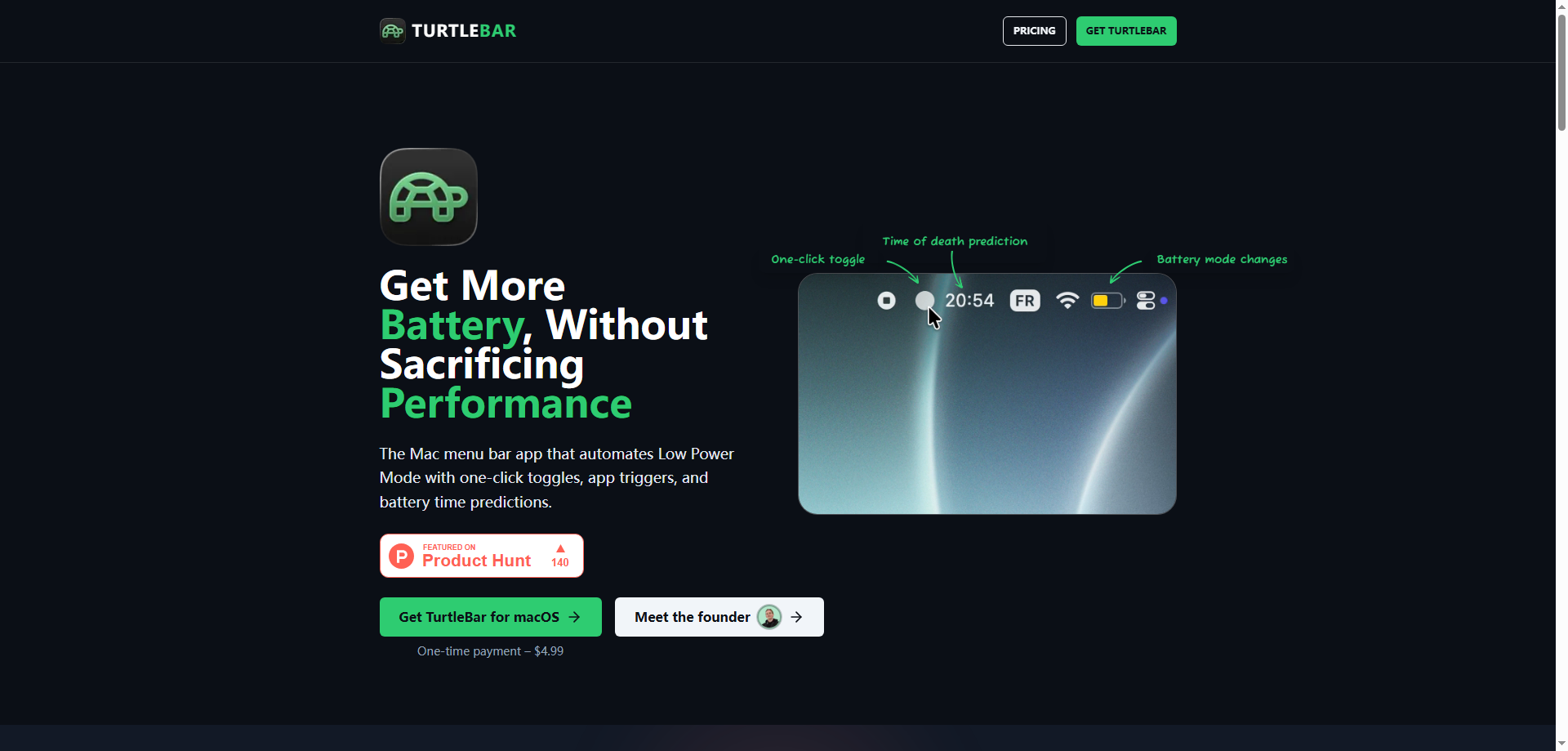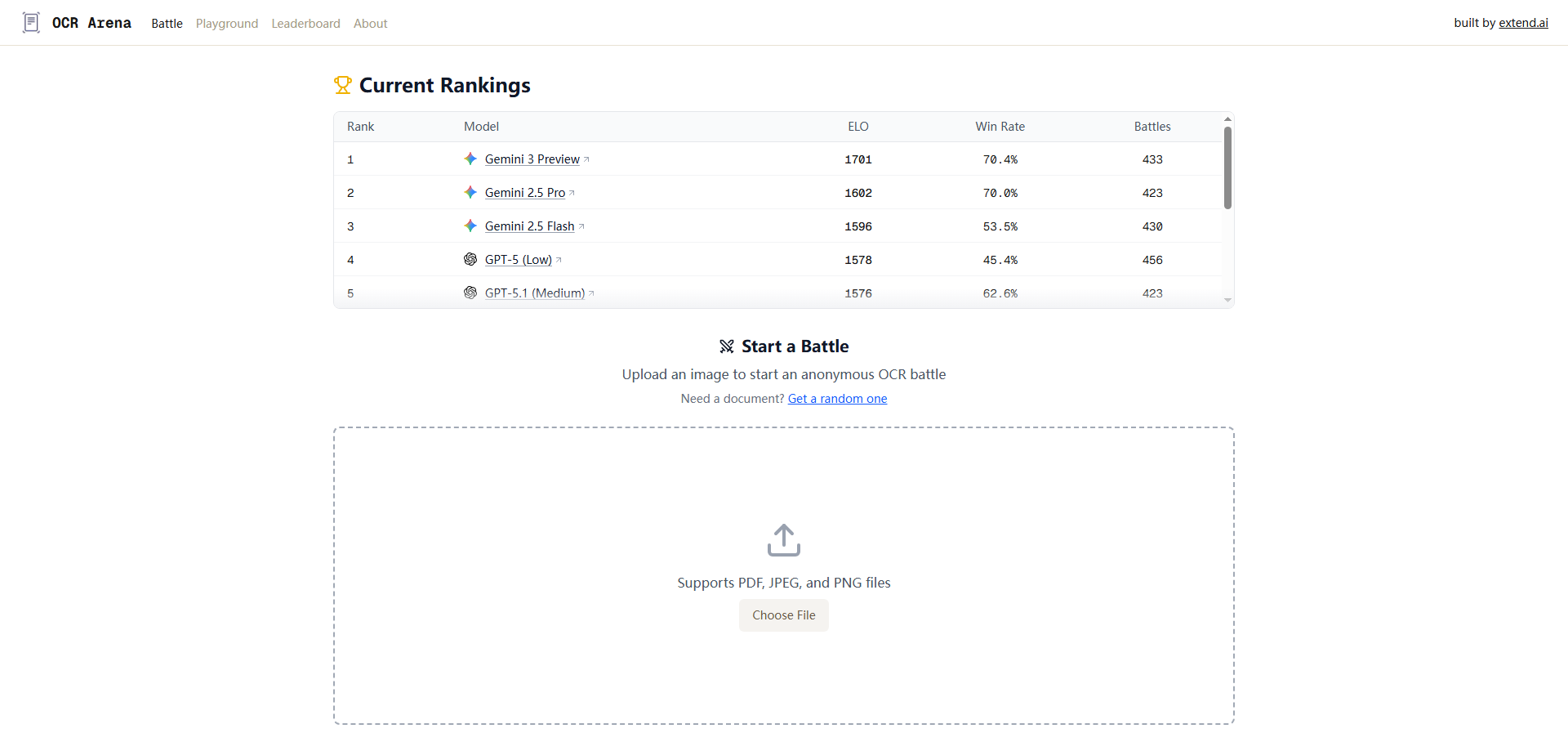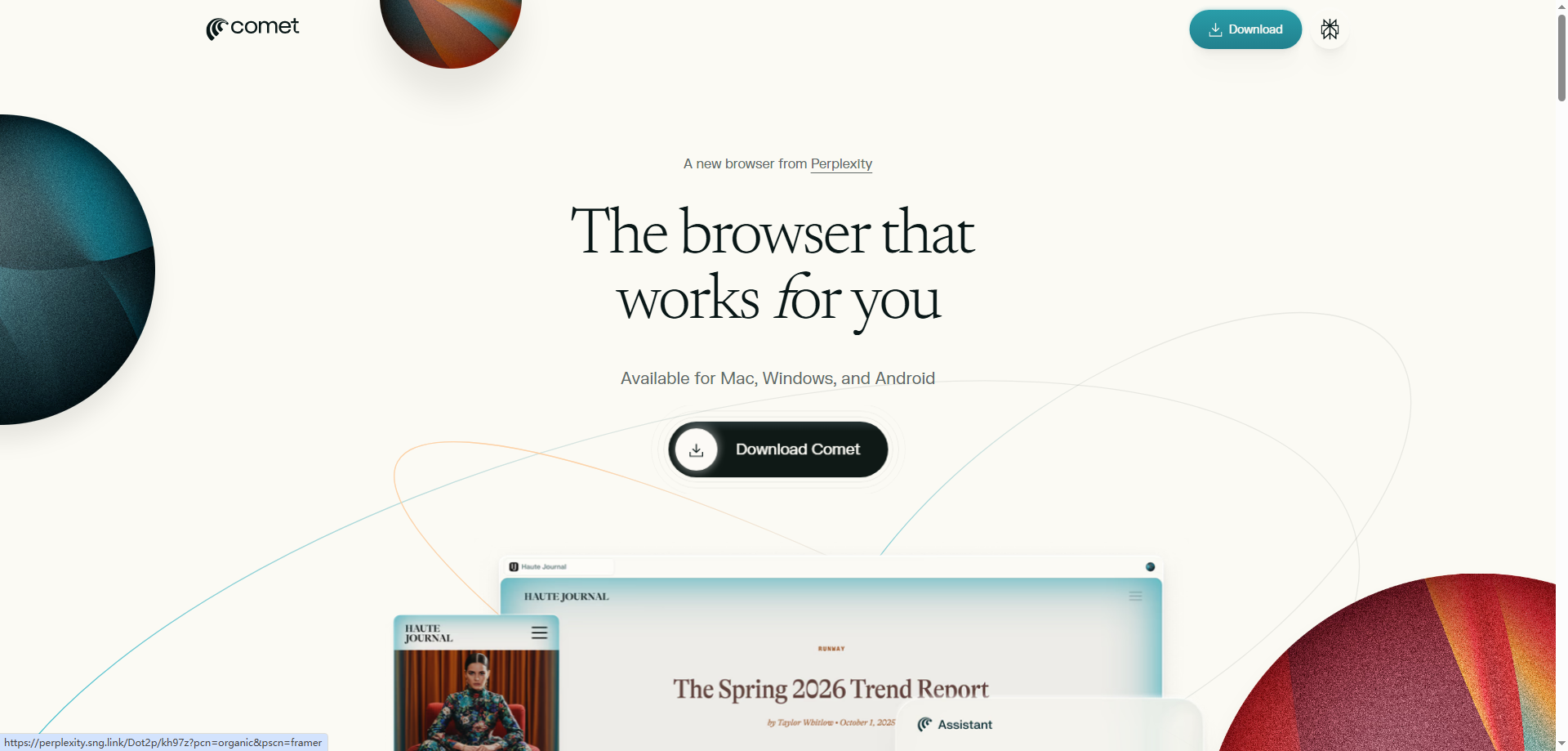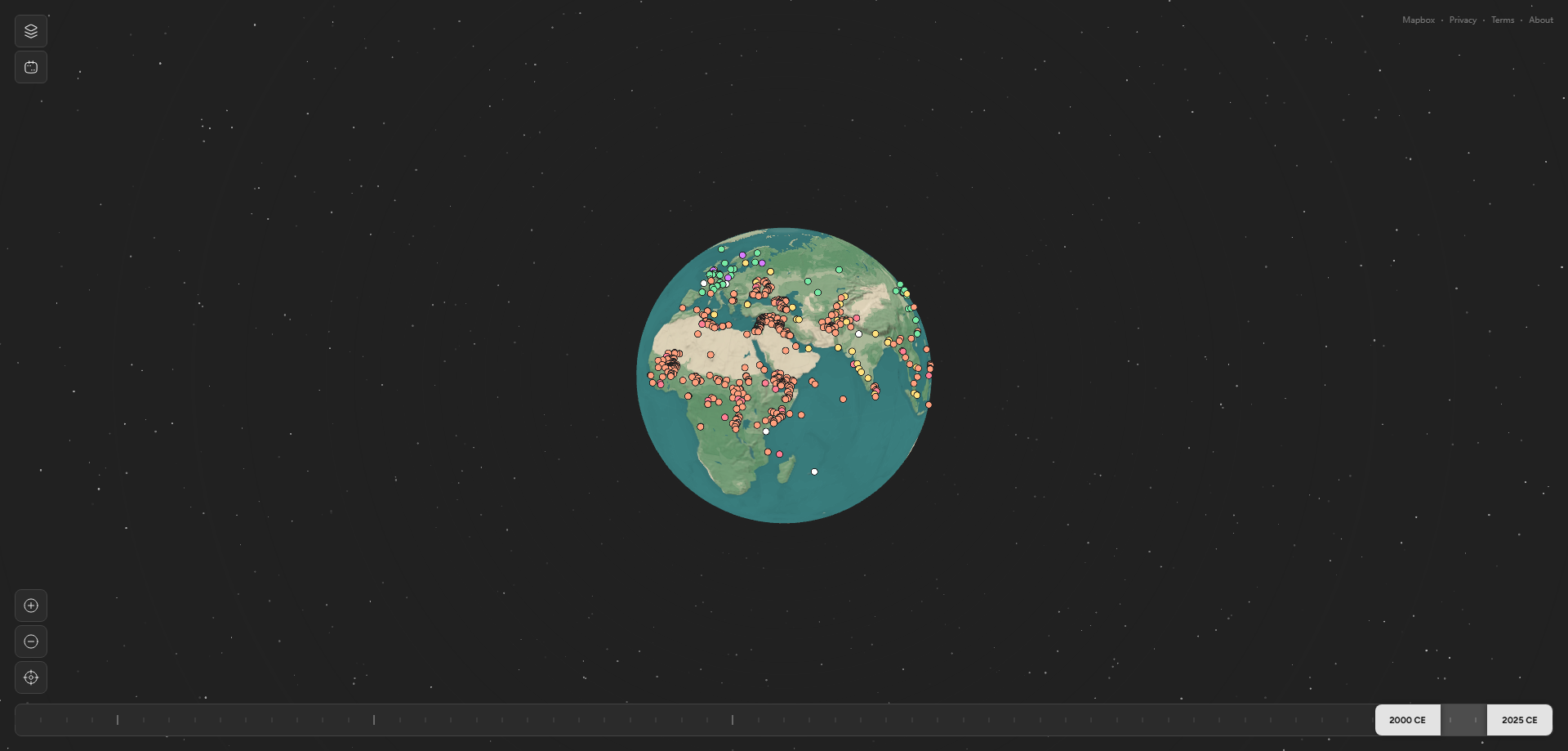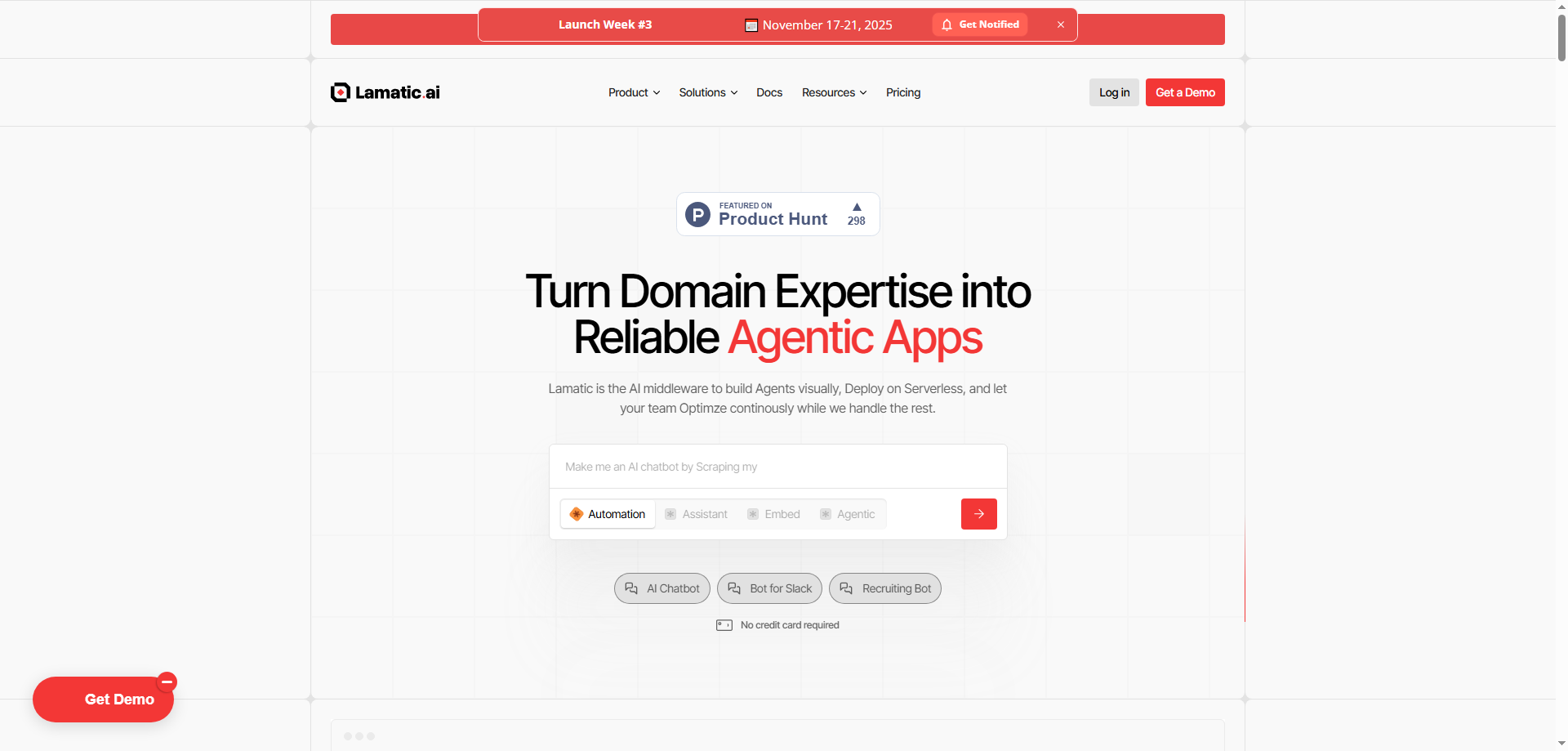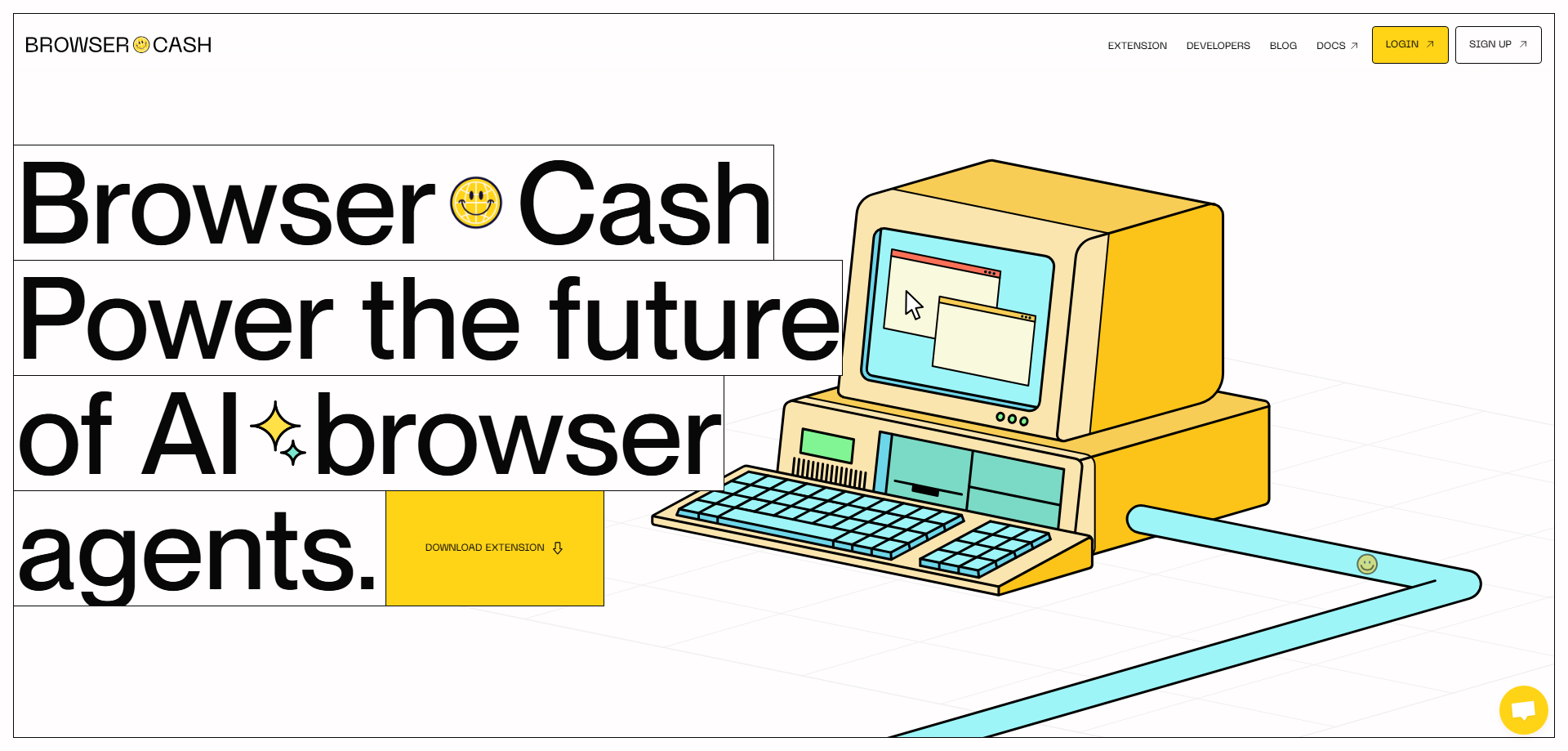So There's This Tool Called Surfgeo That Wants to Be SEO for the AI Age
Let me tell you about Surfgeo, because I think this might be one of those products that's either way ahead of its time or perfectly timed for a massive shift in how online discovery works. The pitch is basically: "SEO is dead, GEO is the future" – where GEO stands for Generative Engine Optimization, meaning optimizing your content for AI search engines and LLMs instead of traditional search engines.
Surfgeo promises to show you when and where AI mentions your website in its answers, which sources AI trusts most, and how your "share of voice" compares to competitors. Then it turns these insights into actionable strategies for improving your visibility in AI-generated responses.
Sounds futuristic, right? But is it actually useful now? Let me break down my honest thoughts.
1. The Creative Vision Behind Surfgeo (And Why It Might Be Genius)
Let's talk about whether Surfgeo represents genuinely creative thinking or just premature optimization for a future that hasn't arrived yet.
Anticipating the Post-Google World
Here's what's creatively brilliant about Surfgeo: they're betting on a fundamental shift in how people find information online.
Think about it – traditional SEO has been about optimizing for Google's algorithm. You research keywords, build backlinks, optimize meta tags, create content Google will rank highly. This has been the game for 20+ years.
But now we have ChatGPT, Claude, Perplexity, Google's AI Overview, and other AI-powered answer engines. People are increasingly asking AI questions and getting synthesized answers instead of clicking through search results.
Surfgeo is creatively positioning itself at the forefront of this shift. They're saying: "In the future, the question won't be 'how do I rank #1 on Google?' but rather 'how do I get AI to cite me in its answers?'"
That's genuinely forward-thinking creative positioning. Whether the future arrives fast enough to make this a good business is another question, but the strategic vision is sound.
The "AI Citation Tracking" Concept
What I find creatively innovative about Surfgeo is the focus on tracking AI citations and understanding AI trust signals.
In traditional SEO, you track rankings, backlinks, and traffic. Surfgeo is creating an entirely new category of metrics: AI mention frequency, source trust assessment, share of voice in AI responses.
This is creative because it requires rethinking content success metrics. It's not about page views or conversions directly – it's about becoming a trusted source that AI models reference. That's a fundamentally different optimization goal.
The creative insight is that in an AI-mediated discovery world, being cited is the new ranking. If Claude or ChatGPT mentions your website when answering relevant questions, that's valuable even if users don't click immediately. You're building brand authority and trust through AI endorsement.
The GEO Methodology Framework
Surfgeo is attempting to create a structured methodology for Generative Engine Optimization, which is creatively ambitious.
They're not just saying "optimize for AI" vaguely. They're providing specific actionable strategies: identify prompt-level gaps, determine which channels (blogs, reviews, communities) to dominate, adjust content based on how LLMs actually formulate answers.
This systematic approach to a brand-new field is creatively valuable. Surfgeo is essentially trying to become the "Moz" or "SEMrush" of the GEO era – establishing best practices and frameworks for a discipline that barely exists yet.
The Competitive Benchmarking Angle
The feature that shows your "share of voice" compared to competitors in AI responses is creatively smart.
Traditional SEO already has competitive analysis, but Surfgeo is adapting this for AI citations. You can see: when AI answers questions in your domain, does it mention you 10% of the time while mentioning your competitor 40% of the time?
That's actionable competitive intelligence for a new battleground. It's creatively translating established SEO concepts (competitive analysis, share of voice) into the AI context.
The Creative Limitations I See
But let me be honest about where Surfgeo's creativity hits practical walls:
It's solving tomorrow's problem, not today's: The vast majority of online traffic still comes from traditional search engines. AI search is growing but isn't dominant yet. Surfgeo is creatively ahead of the curve, but possibly too far ahead.
The measurement challenge: How does Surfgeo actually track AI citations comprehensively? AI models are constantly updated, responses are non-deterministic, and there are dozens of different AI search tools. The technical challenge of providing accurate, comprehensive AI citation tracking is enormous.
Attribution is murky: Even if AI cites your website, does that actually drive traffic or business results? The ROI of AI citations is unclear. Surfgeo is creatively tackling this space, but the business value hasn't been proven yet.
So creatively, Surfgeo is visionary and forward-thinking. But vision without execution and market timing can fail.
2. Can Surfgeo Disrupt Traditional SEO Tools?
Now let's talk about whether Surfgeo can actually replace or displace existing SEO and content optimization tools.
What Surfgeo is Competing Against
Surfgeo is essentially competing with:
- Traditional SEO platforms (SEMrush, Ahrefs, Moz)
- Content analytics tools (Google Analytics, BuzzSumo)
- Competitive intelligence tools (SimilarWeb, SpyFu)
- AI content optimization tools (Clearscope, MarketMuse)
Can Surfgeo replace any of these? Let's be realistic.
What Surfgeo Could Potentially Disrupt
Future content strategy planning: If AI search does become dominant, Surfgeo could disrupt how content strategists plan what to create. Instead of keyword research for Google, you'd do "AI citation research" to understand what content gets referenced.
I could see a future where content marketers use Surfgeo to understand: "What topics should I cover to maximize AI citations in my niche?"
Competitive analysis in AI visibility: For forward-thinking brands worried about their position in the AI discovery landscape, Surfgeo could become essential competitive intelligence.
If your competitors are dominating AI responses in your industry, that's a strategic problem. Surfgeo would help you identify and address it.
Brand monitoring in AI responses: Companies already monitor brand mentions in traditional media and social media. Surfgeo extends this to AI-generated content – how are AI models talking about your brand?
This brand monitoring use case could have real value even before AI search dominates.
What Surfgeo Definitely Won't Disrupt (Yet)
Let me be brutally honest about Surfgeo's current limitations:
Traditional SEO tools: Google still drives the vast majority of traffic for most websites. Until that changes fundamentally, Surfgeo isn't replacing SEMrush or Ahrefs. You still need traditional SEO.
Surfgeo is additive, not replacement. You'd use it PLUS traditional SEO tools, not instead of them.
Content creation tools: Surfgeo analyzes how AI cites you, but it doesn't help you write better content directly. It's strategic intelligence, not a writing assistant.
Direct traffic and conversion optimization: Even if AI cites you frequently, you still need to convert visitors into customers. Surfgeo doesn't address conversion optimization, user experience, or sales funnel optimization.
Social media and other channels: Surfgeo focuses specifically on AI search visibility. It doesn't help with social media marketing, email marketing, paid advertising, or other marketing channels.
My Honest Disruption Assessment
Surfgeo isn't going to disrupt the SEO industry tomorrow. But in 3-5 years? Maybe.
Right now, Surfgeo is a supplementary tool for forward-thinking marketers who want early insights into AI search dynamics. It's not essential; it's experimental.
But if AI search adoption accelerates (and it might), Surfgeo could become as important as traditional SEO tools. The disruption potential exists, but it's contingent on behavior change that hasn't happened yet.
I see Surfgeo as a "hedge bet" for marketers. You probably can't justify making it your primary marketing tool now, but you might use it to prepare for a future where AI search dominates.
3. Do Marketers Actually Need Surfgeo Right Now?
Let's dig into whether Surfgeo addresses urgent current needs or is solving a problem most people don't have yet.
The AI Search Reality Check
Here's the critical question: how much traffic and business do AI search engines actually drive right now?
The honest answer: not much, for most websites.
ChatGPT, Claude, Perplexity – these tools are growing rapidly, but they're not replacing Google search for most use cases yet. People still Google things. They still click through to websites. Traditional search still dominates.
So the core need Surfgeo addresses – optimizing for AI citations – is a future need, not an urgent current need for most businesses.
Different Market Segments, Different Urgency
Early adopter brands and tech companies – MODERATE TO HIGH NEED
For brands in tech, AI, and innovation spaces, understanding how AI represents them is genuinely important now. Their audiences are already using AI search tools.
I could see companies like Notion, Figma, or developer tools wanting to know how ChatGPT describes them when users ask about productivity software or design tools.
For this segment, Surfgeo has real current value.
Content publishers and media companies – MODERATE NEED
Publishers are terrified of AI search because it might answer questions without sending traffic to their websites. Understanding how AI uses their content is strategically important.
Media companies might use Surfgeo to understand: "Is AI just regurgitating our content without attribution? Are we getting cited? Should we block AI crawlers or embrace them?"
These are real strategic questions Surfgeo could help answer.
E-commerce and local businesses – LOW CURRENT NEED
Most e-commerce sites get traffic from Google Shopping, paid ads, and traditional search. AI search isn't a significant traffic driver yet.
For these businesses, Surfgeo is interesting but not urgent. Their marketing dollars are better spent on proven channels.
SEO agencies and consultants – MODERATE NEED
Forward-thinking SEO professionals want to stay ahead of trends. Using Surfgeo could help them advise clients on preparing for AI search, even if the impact isn't immediate.
This "thought leadership" use case has value even without immediate ROI.
The Adoption Barriers I See
ROI is unclear: Can you directly correlate Surfgeo insights to increased traffic or revenue? Probably not yet. That makes justifying the cost difficult.
Actionability is uncertain: Even if Surfgeo tells you AI isn't citing you much, what do you do about it? The optimization playbook for AI search is still being written.
Competing priorities: Marketing teams have limited bandwidth. Should they focus on proven channels or experimental AI optimization? Most will choose proven channels.
Measurement challenges: How do you know if Surfgeo's recommendations actually work? AI responses are variable and attribution is messy. Proving success is hard.
My User Acceptance Prediction
I predict low-to-moderate current adoption, concentrated among:
- Tech-forward brands and companies
- SEO professionals and consultants wanting to stay ahead
- Content publishers worried about AI search disruption
- Larger companies with experimental marketing budgets
Mainstream adoption will require AI search becoming a much larger traffic driver than it is today.
Surfgeo is currently a tool for innovators and early adopters, not the mainstream market.
4. The Survival Question: My Rating ⭐⭐⭐ (3 out of 5 stars)
Time for the hard truth. Can Surfgeo survive and thrive over the next year? I'm giving it 3 stars – uncertain with potential.
Why I'm Giving Surfgeo 3 Stars
The Moderate Positive Factors:
-
Addressing a real future need: AI search IS growing. The need Surfgeo addresses will become more important over time.
-
First-mover advantage: Surfgeo is early in the GEO space. If the market develops, being first could be valuable.
-
Visionary positioning: The strategic vision is sound, even if execution and timing are uncertain.
-
Potential thought leadership: Surfgeo could establish itself as the authority on GEO, even if the market is small initially.
Why I'm Not Giving Surfgeo Higher Stars
The Serious Survival Risks:
-
Market timing is everything: If AI search adoption is slower than expected, Surfgeo's entire premise weakens. They might be 3-5 years too early.
-
Monetization challenges: How much can Surfgeo charge when the ROI is unclear? Pricing too high limits adoption; pricing too low limits revenue.
-
Technical sustainability: Tracking AI citations across multiple AI platforms comprehensively is technically complex and potentially expensive to maintain.
-
Competition from AI platforms themselves: Google, OpenAI, Anthropic could offer their own analytics for how AI cites sources. They have better data access than Surfgeo ever will.
-
The "nice to have" problem: For most businesses, Surfgeo is currently a nice-to-have, not a must-have. That limits willingness to pay and adoption urgency.
-
Proving value is hard: How does Surfgeo prove it's delivering ROI when AI search attribution is so murky? Customer retention could be challenging.
-
Small addressable market currently: The intersection of "businesses using AI search seriously" and "willing to pay for optimization tools" is small right now.
The Opportunities I See
Where Surfgeo Could Win:
-
AI search explodes faster than expected: If ChatGPT, Perplexity, etc. truly start replacing Google for significant portions of search queries, Surfgeo's value proposition becomes urgent.
-
Partner with traditional SEO platforms: Get acquired by or partner with SEMrush, Ahrefs, etc. to become their "AI search module." Distribution through established platforms could accelerate adoption.
-
Pivot to broader AI content analytics: Beyond just AI search, analyze how AI models use and represent content across applications. Broader use case might be more viable.
-
Focus on brand monitoring: Position primarily as "brand monitoring in the age of AI" rather than pure optimization. Brand reputation use case might be more immediately valuable.
-
Enterprise early adoption: Large enterprises with experimental budgets and AI strategies might adopt Surfgeo to stay ahead, even without clear ROI. B2B enterprise focus could work.
-
Become the data provider: License Surfgeo's AI citation data to other platforms and tools. The data itself might be more valuable than the tool.
My Survival Prediction
Here's my honest assessment: I give Surfgeo a 50-55% chance of surviving with meaningful traction in one year.
Most likely scenarios:
-
Slow burn early adoption (30%): Surfgeo finds a small but dedicated user base among forward-thinking marketers and SEO professionals. Achieves modest revenue but not explosive growth.
-
Pivot or repositioning (25%): Realizes pure AI search optimization market isn't ready yet. Pivots to adjacent use case like brand monitoring, content intelligence, or gets acquired by larger platform.
-
Early shutdown (20%): Can't achieve meaningful adoption or revenue. Market timing is wrong. Shuts down within 12-18 months.
-
Acquisition by SEO platform (15%): SEMrush, Ahrefs, or similar acquires Surfgeo to add AI search capabilities. Good outcome for founders but Surfgeo ceases as independent product.
-
Breakthrough success (10%): AI search adoption accelerates dramatically, Surfgeo perfectly captures the wave, becomes essential tool. Possible but requires favorable market conditions.
The 3-star rating reflects genuine innovation and smart positioning facing massive market timing uncertainty.
My Final Thoughts on Surfgeo
Look, I'm genuinely impressed by the vision behind Surfgeo. They're thinking ahead, identifying where the puck is going rather than where it is now. That strategic foresight is admirable.
But here's my concern: being right too early is indistinguishable from being wrong.
If AI search takes 5 years to become mainstream, can Surfgeo survive 5 years of limited market demand? That's the existential question.
Should marketers try Surfgeo if it's available?
If you're in tech, AI, or innovation spaces, yes, absolutely try it. Understanding how AI represents you could be strategically valuable even without immediate ROI.
If you're in traditional industries relying on traditional search, you can probably wait. Monitor the space but don't invest heavily yet.
Would I personally use Surfgeo?
If I were running a tech company or content publication, I'd try it out of strategic curiosity. I'd want early insights into AI search dynamics even if I'm not optimizing heavily for it yet.
But I wouldn't make it a core marketing tool until AI search becomes a material traffic driver.
Will Surfgeo succeed as a business?
I'm genuinely uncertain. The vision is right, but timing might be wrong. Success depends heavily on external factors (AI search adoption rate) that Surfgeo doesn't control.
My Rating: ⭐⭐⭐ (3/5 stars)
Visionary positioning addressing a real future need, but facing severe market timing uncertainty and unclear current value proposition. Survival depends on AI search adoption accelerating or successful pivot to more immediately valuable use cases.
My advice to the Surfgeo team:
-
Focus on thought leadership: Become THE authority on GEO through content, research, and education. Build brand even if revenue is slow initially.
-
Find the early adopter segment: Identify which businesses get value from Surfgeo NOW (probably tech companies and publishers) and focus intensely on them.
-
Consider freemium: Let people explore the tool for free with limited features. Build user base and engagement before pushing paid conversion.
-
Broaden the value proposition: Don't just position as optimization tool. Emphasize competitive intelligence, brand monitoring, strategic insights – use cases that have value even without immediate optimization.
-
Prepare for multiple scenarios: Have contingency plans for slow AI search adoption (pivot options) and fast adoption (scaling plans).
Surfgeo is a fascinating experiment at the frontier of marketing technology. I hope they succeed because the vision is compelling. But success is far from guaranteed.
The next year will be critical. If AI search adoption accelerates, Surfgeo could become essential. If not, they'll need to adapt or risk becoming a cautionary tale of premature optimization.
I'm watching with genuine interest. The outcome will tell us a lot about how fast the AI search revolution is really happening.
